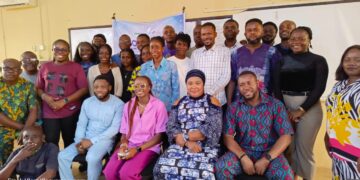By Asuquo Cletus
Journalists in Cross River State have received training on ethical and evidence-based reporting of tobacco harm reduction and safer nicotine products.
The one-day workshop, held yesterday at the Department of Public Health, University of Calabar, was convened by Molly Ogbodum, a board member of Students for Sensible Drug Policy (SSDP) International, with support from Knowledge Action Change (KAC), a UK-based public health organisation, under the Tobacco Harm Reduction Scholars Programme (THRSP).
Speaking during the session, Ogbodum described the training as the first of its kind in Nigeria, stressing that the initiative was designed to equip media professionals with the tools and knowledge needed to drive fair, fact-based reporting on tobacco use and safer nicotine alternatives.
“This workshop is about bridging the gap between science and journalism. Journalists play a central role in shaping public opinion, and misinformation around tobacco harm reduction has been widespread. The toolkit we presented today contains scientific facts, myths and realities, and guidelines for ethical reporting that ensure people who smoke are represented with dignity,” she explained.
She emphasised that her organisation, SSDP International, approaches drug use and tobacco smoking from a public health perspective, rather than a criminal or social lens.
“For us, drug use is a health problem, not a crime. People who use drugs are first and foremost human beings with rights, and they should never be reduced to labels. By equipping the media with accurate information, we can help change the narrative, fight stigma and promote people-centred public health interventions,” Ogbodum said.
The training, she noted, aimed to strengthen journalists’ capacity to correct misinformation, highlight safer alternatives, and adopt ethical storytelling in their work. She added that the initiative also underscores the need for decriminalisation and harm reduction policies that place human rights at the centre of tobacco and drug policy debates.
Ogbodum further explained that the toolkit provided during the workshop will serve as a resource for journalists to fact-check claims, understand global best practices on safer nicotine products, and drive equitable reporting that balances health concerns with human rights.
According to her, engaging the media is critical in shaping the future of harm reduction in Nigeria. She expressed optimism that the Calabar training will be the beginning of broader engagements across the country.
“This is just the starting point. We hope to see more journalists equipped to tell stories that not only inform but also empower communities and influence positive public health policies,” she added.
Highlight of the event was a question and answer session, as well as the unveiling of the THR toolkit for participants.











